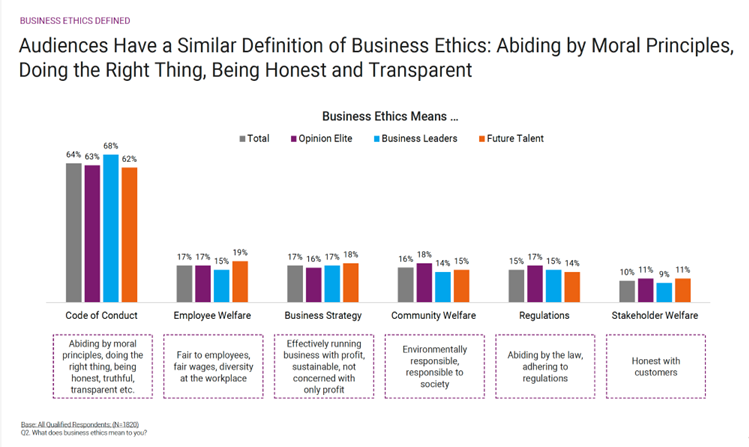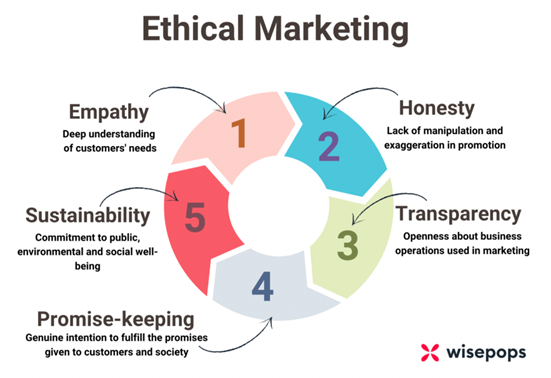"Ethical marketing practices." Surely the phrase is an oxymoron. Or is it?
Today, many people want to be more environmentally and ethically conscious when making product purchases.
At the same time, many businesses are considering ways to transform corporate social responsibility (CSR) initiatives into more comprehensive environmental, social, and corporate governance (ESG) practices they can place at the core of their business model.
It makes sense that businesses move with the times and change how they market their brand.
Business ethics has always been an important concept. But considering recent changes in customer expectations, it is even more essential that the way organizations market themselves in the modern world be more genuine than ever.
To be successful in the long term, businesses must adhere to higher ethical standards.
But how do you switch to ethical marketing practices from a more traditional model? How do you ensure your messages aren't greenwashed or don't mislead your B2B customers?
And what does "ethical marketing practices" even mean?
What Are Ethical Marketing Practices?

Source: aicpa-cima.com
In short, ethical marketing is a strategy that prioritizes responsibility, transparency, and trust in all marketing collateral and campaigns. Essentially, it shows that a business is willing to put fairness and value over generating profit.
Ethical marketing goes hand in hand with business ethics. Modern businesses increasingly emphasize ethical practices—from employee, community, and stakeholder welfare to code of conduct and business strategy. As a result, they'll no doubt want to communicate their responsible stance to clients to foster trust, improve the company's reputation, and set themselves apart from competitors.
Clients and customers are becoming increasingly savvy, though. They understand the market and have high expectations regarding everything from value for money to customer service.
But rather than telling clients what they want to hear (even if it's not strictly correct), a responsible company will stick to the truth. Therefore, ethical marketing practices for businesses should take the following into consideration:
- Communication. Ethical marketing revolves around being genuine in communications—a practice that businesses of all sizes should already be following. Whether in a traditional advertisement or social media post, avoid disingenuous or misleading information and exaggerated claims; always include details that are pertinent to the legal use of a product or service. Focus on the value your business brings to customers and the positive impact it has on stakeholders.
- Pricing. Businesses want to price products competitively or set themselves apart as a higher-end service provider through a luxury pricing model. But marketing your business ethically means avoiding dominating the market.
- Legal obligations. From marketing codes of conduct to data protection laws, there are various legal considerations that ethical businesses must adhere to. It's essential that you're not only aware of these but also use your marketing strategy to inform clients about your practices. That might include data management and right of ownership.
- Social media. Companies are increasingly turning to social media platforms to generate leads. While it's tempting to tap into trends that will increase your reach, it's crucial that any paid ads or posts are a true reflection of your brand's ethical practices and product offering.
Keep in mind that ethical marketing can encompass a wide range of actions that vary according to the sector, product, or service. For example, with some B2B software, clients may want to better understand how you collect and store employee data and know they can request access to confidential information at any time.
If your marketing is honest, clients are more likely to trust your brand and build a long-term relationship with it, which is crucial in the B2B landscape. That approach can cover everything from the advertising you create to the information given by agents in your omnichannel contact center.
It's possible to use machine-learning models to identify changes in client expectations and needs, which can also inform your marketing strategy thereafter.
One way to move toward ethical marketing practices is to ethically harness artificial intelligence to better understand behavior. AI can help identify patterns and trends in your industry, which can inform your marketing strategy and ensure you are meeting the evolving needs of your target audience.






